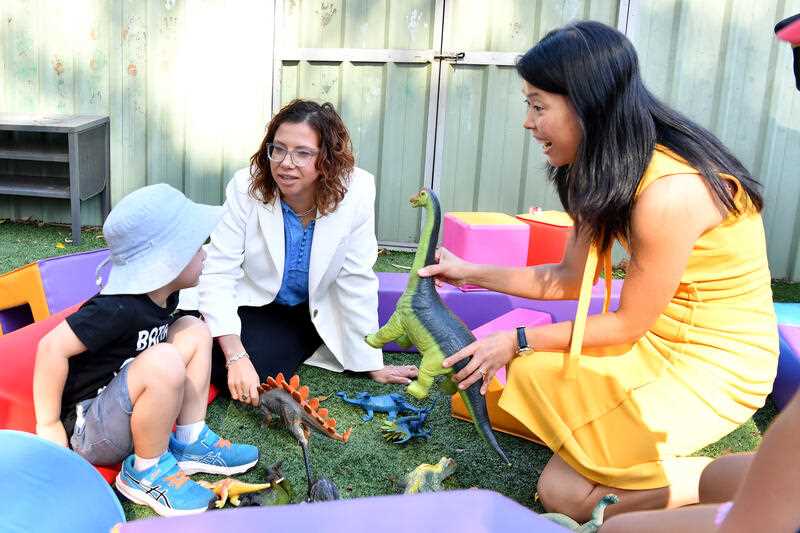One in six Australian children are living below the poverty line, a new report has found.
The Wellbeing of Australia’s Children by UNICEF Australia reveals the nation’s kids are doing well across a range of areas but disadvantage remains.
Indigenous children are seven times more likely to be in out-of-home care than the national average, while poverty continues to be both unacceptably high and stagnant, and formal education is “increasingly inequitable”.
“Indicators of physical and mental health are demonstrating emerging issues of childhood obesity linked to diet and sedentary lifestyle and increasing rates of psychological distress and suicide,” the report also noted.
Social Services Minister Amanda Rishworth said the report showed where Australia needed to do better.
She said the trajectory of out of home care for Indigenous children was going the wrong way.
“One of the really clear messages from this report but also across the board is that we need to start considering children at zero years of age,” she told reporters in Sydney.
“Often it’s been … children are seen and not heard (and) we do need to be ensuring that zero onwards are actually catered for.”
The UNICEF research also found more than four in five Australian children attend preschool and 91 per cent are fully immunised by age two.
Elsewhere, four in five young people report feeling that they have a say among family and friends on important issues.
UNICEF chief advocate for children Nicole Breeze said Australian children benefited from government increasing its focus on those of all ages.
“What is absolutely key is that we put children in the centre of the way we design policy, programs and infrastructure,” she said.
“For too long we have had disintegration between education and health and social services.”
Childhood advocacy organisation Thrive by Five told AAP no Australian child should have to live in poverty.
“Studies from around the globe have highlighted that the first few years of a child’s life are the most essential to their overall developmental prospects,” director Jay Weatherill said.
“Hence concerted efforts must be taken to ensure that every child in Australia has access to high-quality early learning and care, regardless of their circumstances.”
Mr Weatherill said First Nations children needed access to culturally appropriate care and learning in their early years.
He said meaningful steps to closing the gap would include reinstating funding for Aboriginal and Torres Strait Islander-led and operated childcare centres.
The government’s early years strategy will be released later this year, while a summary of the early childhood summit was released on Thursday.
It said the strategy would need to support not only children but parents, carers, families and the broader community.
It also said universal approaches would be needed, but not identical ones, to ensure the strategy could be adapted for local communities.
By Andrew Brown and Maeve Bannister in Canberra



